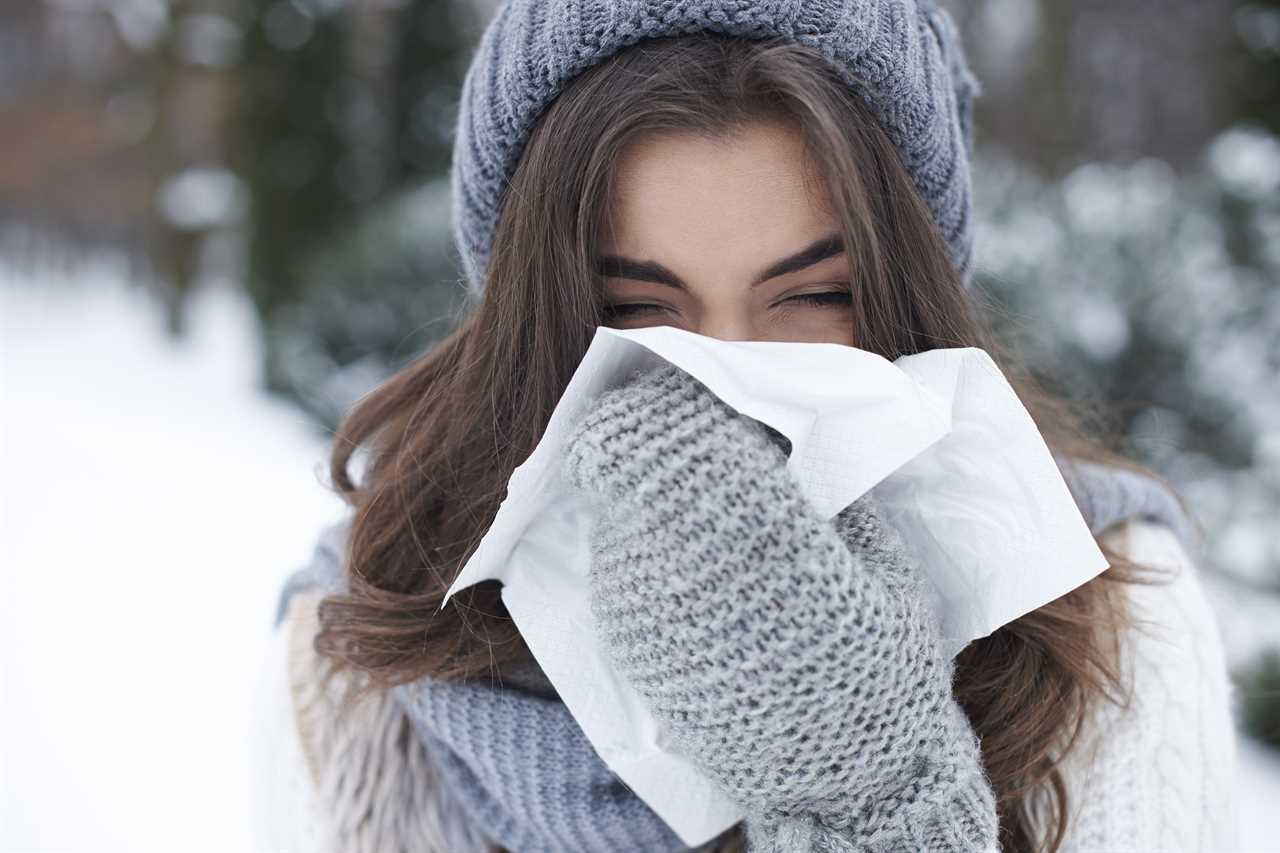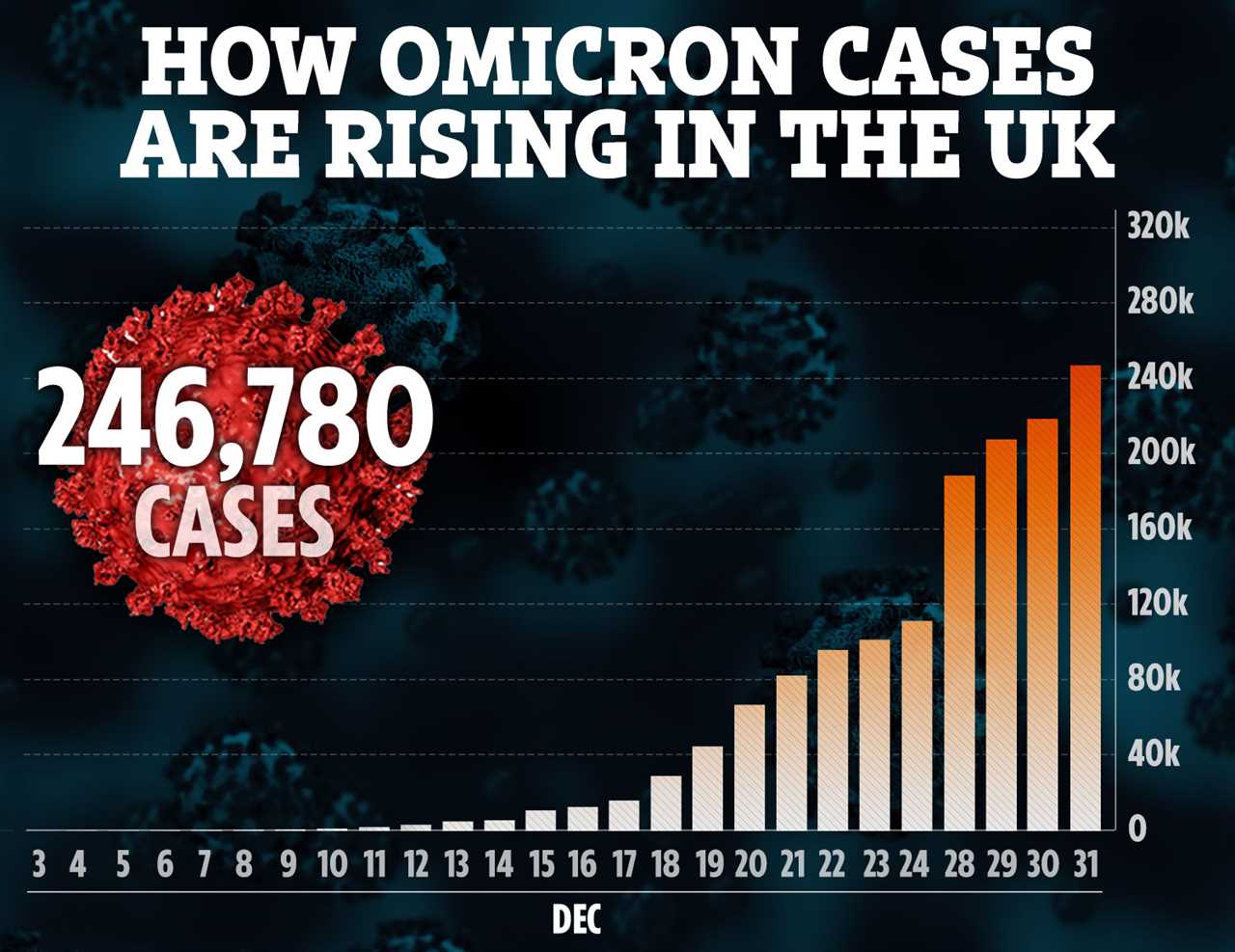IT’S normal to feel a bit sniffly at this time of year, but with Omicron on the rampage, can you be sure you’ve JUST got a runny nose?
Covid-19 rates are high, and while you may know the NHS’ three key symptoms – high temperature, a new continuous cough, loss or change to sense of taste and smell – there are a range of other stealth signs to look out for.

Experts say Omicron doesn’t tend to present in the same way as Delta and previous variants.
A string of hugely positive studies show Omicron IS milder than other strains, with the first official UK report revealing the risk of hospitalisation is 50 to 70 per cent lower than with Delta.
Covid booster jabs protect against Omicron and offer the best chance to get through the pandemic, health officials have repeatedly said.
Trending In The News’s Jabs Army campaign is helping get the vital extra vaccines in Brits’ arms to ward off the need for any new restrictions.
According to experts there a few cold-like symptoms you must never ignore.
A runny nose – which you might just dismiss as a classic winter bug – is thought to be a sign of Omicron.
The ZOE experts said: “This may come as a surprise to some, as the UK government never updated guidance on Covid symptoms beyond the classic three symptoms.”
At the moment it appears symptoms such as as runny nose, sneezing and a sore throat, are among those being most recorded.
Lower back pain, muscle aches and night sweats are also key Omicron symptoms.
These six symptoms could easily go undetected as they could be put down to a cold or the flu, or even a hangover or the after effects of a heavy gym session.
It might be easy to just grab a tissue, blow your nose and think nothing more of it, but it’s really important, if you think you could have Omicron or are unsure about your symptoms, that you get a test and isolate to avoid spreading the illness to others.

Follow our Covid live blog for all the latest news & stories
On night sweats, Dr Amir Khan, a British GP, described “drenching night sweats”, as the kind “where you might have to get up and change your clothes”.
But for some, night sweats may be a regular occurrence.
Those who suffer from them include people going through the menopause, those who have anxiety, take certain medications, are under the influence of drugs and booze, or have hyperhidrosis – a condition that makes you sweat a lot.
Making sure you know the signs of Omicron, as well as the key Covid-19 symptoms, is just one way you can prevent the bug spreading.
Another vital way to avoid spreading Covid, catching it and becoming unwell, is to have your booster vaccine.
GET A TEST
Anyone who feels unwell and has symptoms should get a test.
While there are shortages in some areas, lateral flow tests are a great way to keep your loved ones safe as they provide fast results.
Experts say you should be taking lateral flow tests on the day of meeting someone in order to stop the spread of the variant.
You must report all lateral flow test results to the NHS.
Guidance says if your rapid at-home test gives a positive result, you should self-isolate straight away and get a PCR test, then follow the rules based on that result.
Lateral flow tests are known to be less reliable than the gold-standard PCR tests that are looked at by scientists in a lab.
However, they are still incredibly important to controlling the virus, experts say, as they give fast results to people who otherwise may never have known they were infected.







